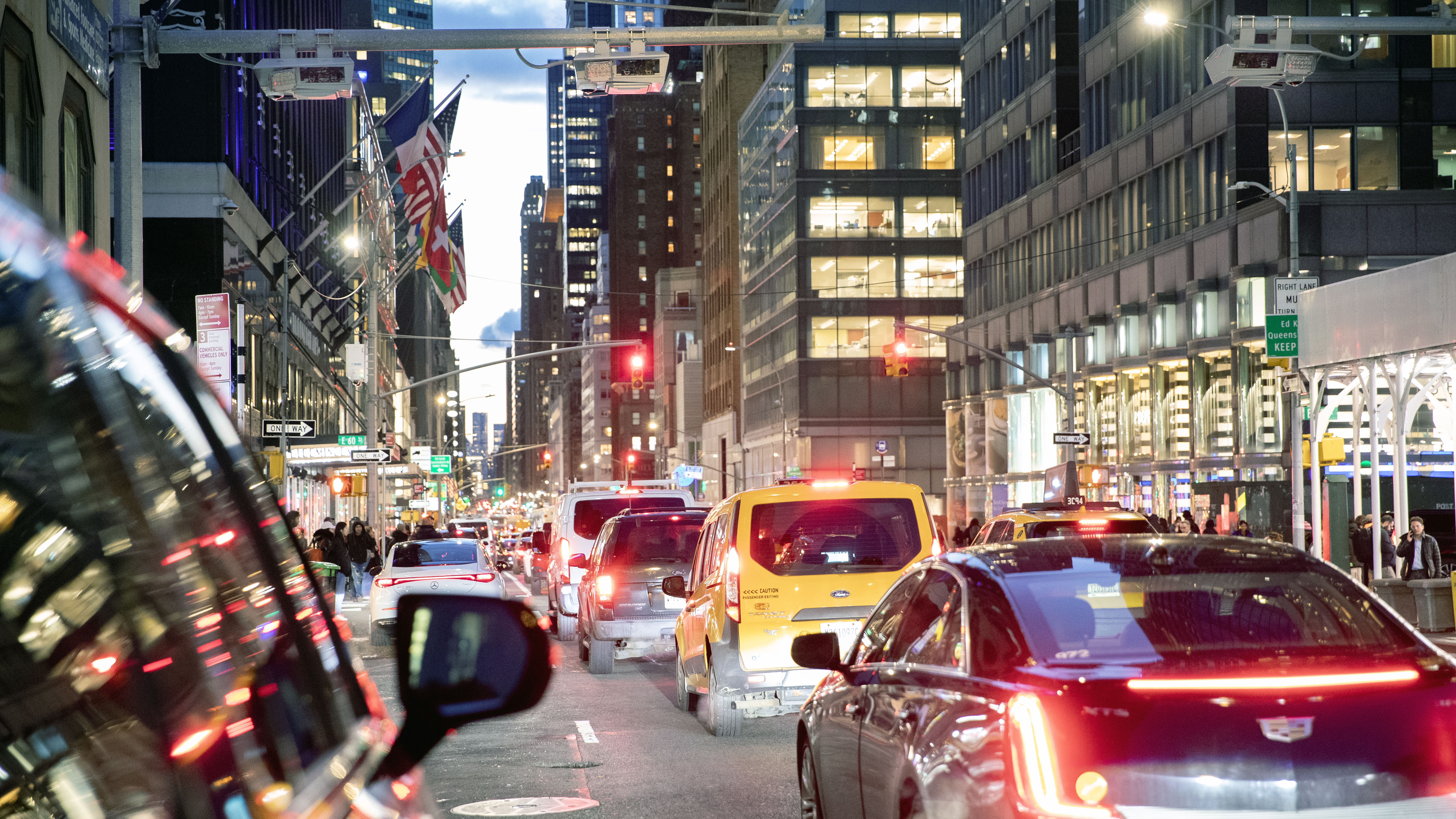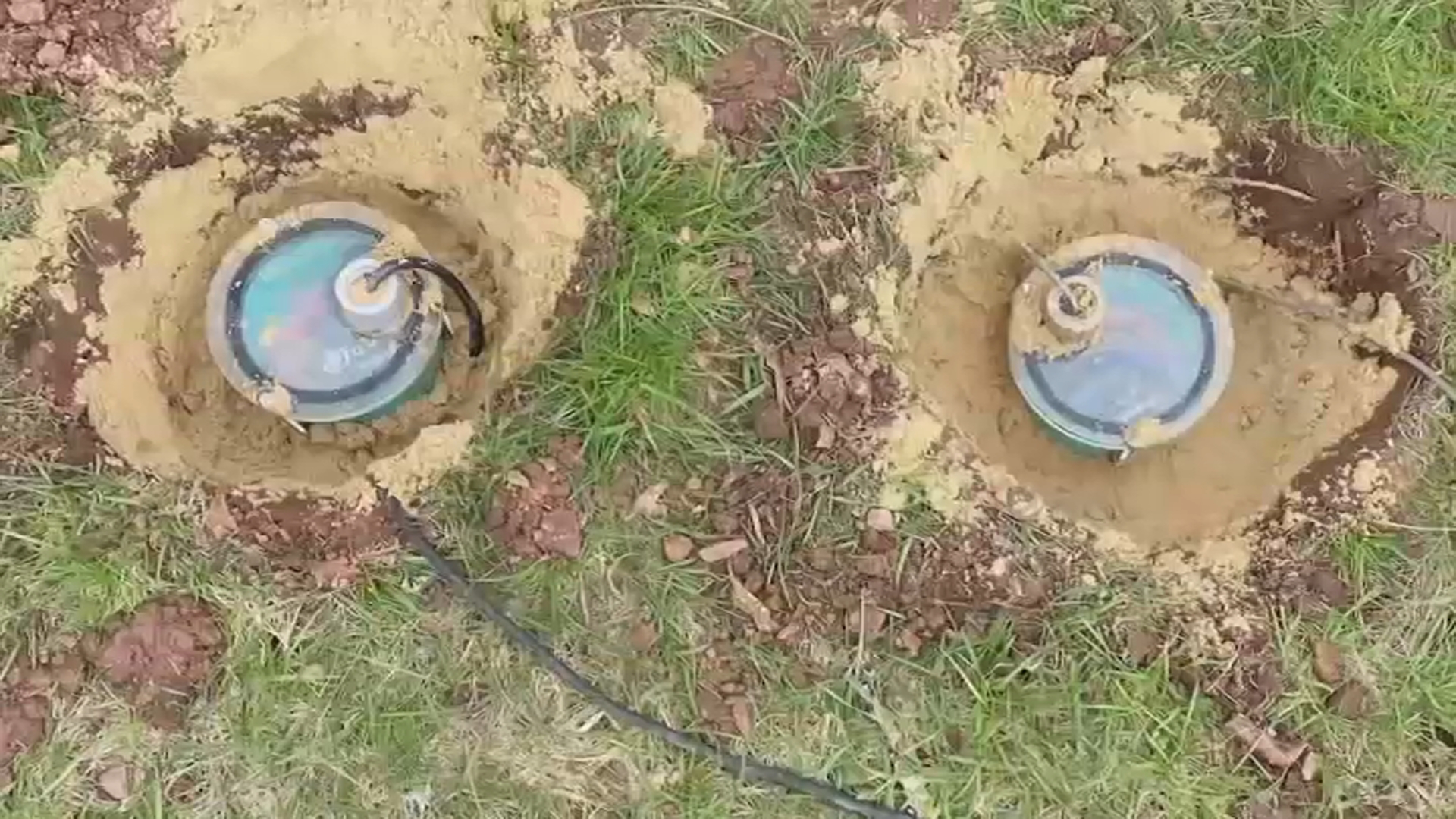Male Aquino would rather risk freezing to death in his cardboard box than move into a warm shelter filled with drug users. But after being featured in a series of NBC New York reports in recent weeks, Aquino's luck seems to have improved.
After applying unsuccessfully for disability benefits for eight years, Aquino suddenly received a Social Security check for almost $2,300 and a promise of $761 a month in the future.
He says the only thing that's changed was that his story ended up on television. Male opened a checking account and says he won't touch the money until he gets an apartment. Then he'll use it for furniture. It's unclear how long it could take to for Male to get a rare affordable housing unit. But most government officials agree the fact that he now has Social Security will be a big help.
Over this holiday weekend we were unable to get a response from the Social Security administration about exactly why they chose to grant him disability payments when as recently as October they told him in writing that he did not qualify.
"My mouth just dropped and my heart dropped. I literally had to step outside because I just started crying," Aquino said.
Since his story aired on Channel 4, Aquino has also received several offers of shelter --from the City Department of Homeless Services and from various non profit groups.
Aquino has refused all offers, except one -- from a kindhearted New York City firefighter named Chris Landano who was watching the news on January 4th when the temperatures dropped to 19 degrees. Landano convinced Aquino to stay at his Queens apartment last weekend when the temperatures became unbearable. Aquino has a standing offer to sleep on Landano's couch one night a week.
It's one thing for a TV viewer to feel comfortable enough letting a homeless man sleep in their living room. But Male Aquino also trusted Landano enough to accept his offer.
Aquino does not appear to have the same issues as many of the mentally ill drug addicted or alcoholic homeless who frequent City shelters.
"There's a couple of us out here who are not messed up in the head," he noted.
Aquino is certainly not your stereotypical homeless person. He says he has a degree from Russell Sage and suits in storage at an East Side dry cleaner.
What is typical, according to homelessness experts and NYC officials, is Aquino's reluctance to enter shelter. Outreach teams often find it challenging to convince the street homeless to come indoors. They become frozen in their ways, a condition more stubborn than the January cold.
Aquino insists he's not choosing to live on the streets. He says he simply won't go to a shelter because they are filled with drug users and mentally ill people. Aquino says he was beaten up twice in shelters. Since he is disabled and walks with a cane, he says he can't defend himself.
I visited one of the new, less traditional City shelters where Aquino was offered a bed. The City calls it a "safe haven" instead of a shelter. The homeless find it attractive not only because of the rather large flat-screen TV in the recreation area, but because the City does not enforce curfews nor a sobriety requirement here. This is precisely why Male Aquino says he won't consider it.
Aquino describes an unhappy childhood in Manhattan. He says his mother was drug addicted, mentally ill, and gave birth to 13 children with 13 different fathers.
Aquino says he doesn't drink or use drugs and steers clear of drug addicted people. He says he doesn't need rehab, nor a program that will help "reform" him, like one of the non profit programs that caters to ex convicts. He says he needs a job that he can do despite his physical disabilities, and a private, clean unit with a lock on the door. Unfortunately, most of the programs designed to bring homeless New Yorkers indoors are not designed with someone like Aquino in mind. They require formerly homeless men to share quarters with each other and live with curfews and in some cases regular drug testing.
After Aquino refused several offers, some people in the homeless services world suggested that Aquino might start to "come across as unreasonable" if he continued to put his life in danger by refusing reasonable offers of help. And true, a small number of viewers responded that Aquino should just take the offers he was getting. While Aquino is clearly not concerned about winning the spin cycle, it's not as if he can't compete. He was quick to question some of the motives of the people who are now trying aggressively to help him after his 15 minutes of fame, suggesting "they just want the credit" for solving his problem on television.
Aquino says his life spiraled out of control after he was the victim of a hit and run accident in Puerto Rico a decade ago that left him scarred and in constant pain. We have not seen documentation of this accident but Aquino has scars from what appear to be multiple surgeries on all his limbs and his face. He says his wife who was caring for him after the accident died of cancer two years later.
Aquino is intelligent, articulate, and meticulously clean and well dressed. So much, that it did not register with me at first when he told me he was homeless. He was clean-shaven, standing on line at a food pantry at the Jan Hus church on East 74th street wearing a nicely pressed pair of slacks, a button down shirt and sweater. A well dressed pantry client? Perhaps.
A man who sleeps in a box? It didn't compute.
This past week was not the first time Aquino benefited from the kindness of strangers. He says last year, a man stumbled upon him washing up in a hotel bathroom. The man took him to a Parks Department facility and bought him a one year membership for $75 dollars. This enables Aquino to shower and shave every day. The church allows him to store some of his belongings and receive mail.
Then there was Jack, the Verizon worker who used to pass Aquino on his stoop during his daily pre-dawn commute. Jack brings Male an egg sandwich each morning and pizza every Friday.
For now, while City Homeless officials and other outreach workers say they're trying to coax him in, Aquino respectfully declines. He says he prefers his cardboard box on the East Side to a shelter setting of any sort.
Dozens of NBC New York viewers have come forward pleading for the chance to help Male Aquino. It was an unusual response, but it proves the theory that news viewers don't just want information - They want to know what they can do about a problem.
At first, firefighter Chris Landano called the Channel 4 newsroom to offer Male his tent. Later he packed up one of his sleeping bags and drove into Manhattan. After an almost three hour lunch, the firefighter called me back to say he had made a new friend and had committed to checking in with Aquino every day. A couple from Maspeth brought him some new shoes, socks and jackets. A psychiatrist in Harlem offered him treatment. There are more stories like these.
I started to worry that the minutes on his cellphone were running out and that if they did, Male would lose touch with the powers now aggressively trying to help him because of all the media coverage. But he encouraged me to give out his cellphone number to anyone who calls. He says "My cellphone is my lifeline out here on the streets and it's nice to hear from people." He told me he was shocked by how many people called him. "There was a joy that I felt that somebody cared. Most people think you're a lazy bum and don't want to work."
While many callers were perfectly prepared to hand over cash, Male Aquino seemed uninterested in capitalizing on this opportunity. He asked that people do two things:
Local
1. Call the Mayor and suggest he find him housing without forcing him enter a shelter.
2. Add some more minutes to his prepaid T Mobile cellphone. Our viewers have done both and so Male Aquino will continue to receive calls from people offering to help.
The two remaining questions are whether someone with authority will offer him what he says he will accept... Permanent affordable housing. And if so, will he accept it? We welcome your responses at melissa.russo@nbcuni.com



